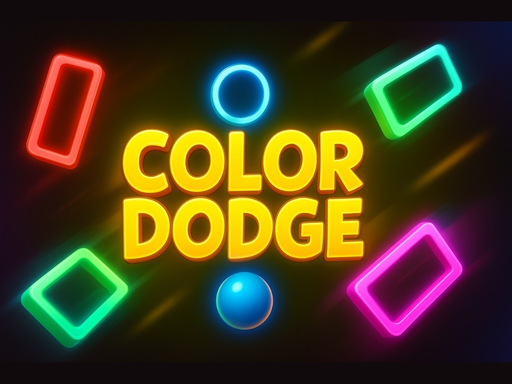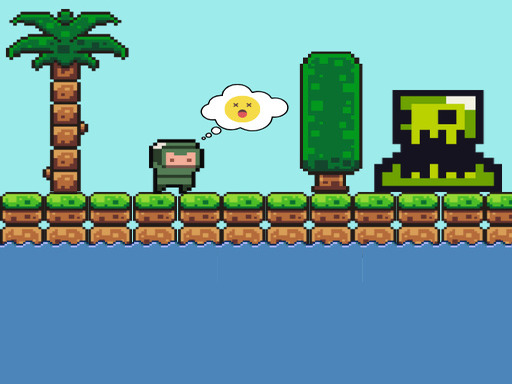Phantom Gambit: Sacred Clash
About Phantom Gambit: Sacred Clash
Dude, you are not going to *believe* what I stumbled upon. Seriously, put down whatever you’re doing, because I need to tell you about Phantom Gambit: Sacred Clash. I know, I know, the name sounds a bit… dramatic, right? Like some forgotten arcade gem from the late 90s, all neon and impossible difficulty. But honestly, it’s so much more than that. It’s a revelation. I’ve been absolutely *obsessed* with it for the past week, and I swear, it’s scratched an itch I didn’t even know I had.
You know how I’m always drawn to games that make you *think*? Not just twitch reflexes, though there’s a surprising amount of quick decision-making here, but the kind of game that plants itself in your brain even when you’re not playing, making you strategize in the shower or while you’re waiting for coffee? That’s Phantom Gambit. It’s like a chess match, but if chess was designed by a mad genius who decided some pawns were actually bombs and the queen was trying to escape to another dimension. It’s brilliant.
The first time I saw it, I was just scrolling through some indie recommendations, and the art style caught my eye. It’s got this really clean, almost minimalist aesthetic, but with these bursts of vibrant, almost ethereal energy when pieces move or special abilities activate. It’s not trying to be hyper-realistic; it’s going for something more abstract, more *mythic*, and it absolutely nails it. You can almost feel the weight of the board, the tension in the air as you hover your cursor over a piece, contemplating your next move. The sound design, too, is just *chef’s kiss*. Every move has this satisfying, almost crystalline click, and when a special piece makes its move, there’s a subtle hum, a little flourish of sound that just elevates the whole experience. It’s incredibly immersive for a game that’s fundamentally about strategic piece placement.
What's fascinating is how deceptively simple it seems at first. You’ve got your pieces, your opponent has theirs, and the goal is, broadly, to outmaneuver them. But then you start to realize the layers. Oh, the *layers*. This isn't just about capturing everything in sight. That’s where the "Phantom Gambit" part of the name really kicks in. See, some of your pieces, and some of your opponent's, are *forbidden* to capture. You absolutely cannot take them. And the brilliant thing about this is, one of the primary ways to win is to *force your opponent* to capture one of *your* forbidden pieces.
Think about that for a second. It flips everything you know about strategy games on its head. Suddenly, your most vulnerable, seemingly useless pieces become these incredible traps. You’re not just trying to protect them; you’re trying to bait your opponent into a position where they *have* to take one, or else they lose a critical piece, or open themselves up to a devastating counter-attack. It’s a mind game within a mind game, and the satisfaction when you successfully pull off a forbidden capture gambit? Oh man, it’s like solving a Rubik’s Cube blindfolded. You just lean back in your chair, a slow grin spreading across your face, because you know you just out-thought them on a fundamental level. I mean, I’ve actually cheered out loud in my living room more than once. My cat thinks I’m losing it.
Then there are the special pieces. This isn't just a game of identical pawns and a king. Each faction, each side, has these unique units, some with special movement patterns, others with abilities that can shield adjacent pieces, or even temporarily disable an opponent’s piece. It makes every match feel fresh, because you’re not just reacting to a static board; you’re adapting to these dynamic, evolving threats and opportunities. You might have a "Sentinel" piece that can protect anything within its aura, making it a nightmare to approach, or a "Shadow Weaver" that can teleport short distances, perfect for flanking or making a quick escape. The synergy between these pieces is where the real depth lies. You’ll find yourself planning three, four, five moves ahead, not just for individual captures, but for setting up these intricate dance routines between your units.
And speaking of captures, that’s another victory condition. Sometimes, you just need to go for the jugular. Capture a set number of the opponent's *valid* targets, and boom, victory. This adds an incredible tension because you're constantly balancing aggression with caution. Do you push hard for those valid captures, risking exposing your own forbidden pieces? Or do you play it safe, trying to set up a forbidden capture trap, while your opponent whittles down your more expendable units? It’s a constant, exhilarating tug-of-war. I've always been drawn to games that offer multiple paths to victory, because it means there's never a single "correct" strategy, and Phantom Gambit absolutely delivers on that.
But the real magic happens when you realize there’s a *third* way to win: successfully guiding a specific number of your own pieces to designated escape points. This is where the "Sacred Clash" part feels most poignant. These aren't just pieces; they're almost like pilgrims, or precious cargo, and you have to shepherd them across a treacherous board, past your opponent’s watchful eyes and aggressive units, to safety. The tension during these escape runs is palpable. You’re trying to clear a path, distract your opponent, sacrifice lesser pieces to buy time, all while inching these crucial units closer to the finish line. There’s something profoundly satisfying about watching your last "Seeker" piece finally slip past a blockade and disappear off the edge of the board, knowing you’ve secured victory through sheer perseverance and clever routing. It’s like a mini-narrative unfolding in every single match.
The beauty of it is that you can play against the AI, which is surprisingly cunning and scales really well, or against another player. And honestly, P1 vs P2 is where this game truly shines. There's nothing quite like the silent, intense staredown across the table (or screen, if you're playing online) as you both try to read each other's intentions. You see them moving a piece, and you're frantically trying to deduce if it's an attack, a feint, or a setup for a forbidden capture. The bluffing, the double-bluffing – it's all there. The emotional connection you build with your opponent, even in a competitive setting, is incredible. You feel their frustration when you spring a trap, and you feel that little pang of respect when they pull off a brilliant counter-move. In my experience, the best moments come when you’re both so evenly matched that every single move feels like it could be the decider.
What I love about games like this is how they force you to adapt. You can’t just stick to one strategy. One game, you might find yourself aggressively hunting down their valid targets, pushing them back. The next, you might be meticulously setting up a forbidden capture, sacrificing pieces to draw them into your snare. And then, there are those matches where you realize, "Okay, my pieces are too exposed, I need to pivot to an escape strategy." That flexibility, that constant re-evaluation of your win condition, is what keeps it so fresh and endlessly replayable. It’s never just about memorizing openings; it’s about understanding the flow of the game, the psychology of your opponent, and the unique capabilities of your pieces.
You can almost feel the weight of the decisions, the tension in your shoulders as you try to visualize the board state three moves from now. The sounds of the game, the subtle visual cues, they all contribute to this incredible atmosphere of strategic warfare. It’s not a fast-paced action game, but your heart rate *will* increase. You'll find yourself leaning forward, eyes narrowed, as you try to anticipate their next move, or the satisfaction of solving a complex puzzle when a strategy finally clicks into place is just… *chef’s kiss* again. It’s that feeling of true intellectual engagement, where you feel your brain cells firing on all cylinders, that makes Phantom Gambit so utterly compelling.
Honestly, if you’re looking for something that’s going to challenge you, make you think, and give you that deep, satisfying feeling of strategic mastery, you *have* to check out Phantom Gambit: Sacred Clash. It’s not just a game; it’s an experience. I’m telling you, you’ll lose track of time. You’ll be playing one more match, then one more, then suddenly the sun’s coming up, and you’re still trying to figure out how you could have avoided that last forbidden capture. It’s that good. Trust me on this one.
You know how I’m always drawn to games that make you *think*? Not just twitch reflexes, though there’s a surprising amount of quick decision-making here, but the kind of game that plants itself in your brain even when you’re not playing, making you strategize in the shower or while you’re waiting for coffee? That’s Phantom Gambit. It’s like a chess match, but if chess was designed by a mad genius who decided some pawns were actually bombs and the queen was trying to escape to another dimension. It’s brilliant.
The first time I saw it, I was just scrolling through some indie recommendations, and the art style caught my eye. It’s got this really clean, almost minimalist aesthetic, but with these bursts of vibrant, almost ethereal energy when pieces move or special abilities activate. It’s not trying to be hyper-realistic; it’s going for something more abstract, more *mythic*, and it absolutely nails it. You can almost feel the weight of the board, the tension in the air as you hover your cursor over a piece, contemplating your next move. The sound design, too, is just *chef’s kiss*. Every move has this satisfying, almost crystalline click, and when a special piece makes its move, there’s a subtle hum, a little flourish of sound that just elevates the whole experience. It’s incredibly immersive for a game that’s fundamentally about strategic piece placement.
What's fascinating is how deceptively simple it seems at first. You’ve got your pieces, your opponent has theirs, and the goal is, broadly, to outmaneuver them. But then you start to realize the layers. Oh, the *layers*. This isn't just about capturing everything in sight. That’s where the "Phantom Gambit" part of the name really kicks in. See, some of your pieces, and some of your opponent's, are *forbidden* to capture. You absolutely cannot take them. And the brilliant thing about this is, one of the primary ways to win is to *force your opponent* to capture one of *your* forbidden pieces.
Think about that for a second. It flips everything you know about strategy games on its head. Suddenly, your most vulnerable, seemingly useless pieces become these incredible traps. You’re not just trying to protect them; you’re trying to bait your opponent into a position where they *have* to take one, or else they lose a critical piece, or open themselves up to a devastating counter-attack. It’s a mind game within a mind game, and the satisfaction when you successfully pull off a forbidden capture gambit? Oh man, it’s like solving a Rubik’s Cube blindfolded. You just lean back in your chair, a slow grin spreading across your face, because you know you just out-thought them on a fundamental level. I mean, I’ve actually cheered out loud in my living room more than once. My cat thinks I’m losing it.
Then there are the special pieces. This isn't just a game of identical pawns and a king. Each faction, each side, has these unique units, some with special movement patterns, others with abilities that can shield adjacent pieces, or even temporarily disable an opponent’s piece. It makes every match feel fresh, because you’re not just reacting to a static board; you’re adapting to these dynamic, evolving threats and opportunities. You might have a "Sentinel" piece that can protect anything within its aura, making it a nightmare to approach, or a "Shadow Weaver" that can teleport short distances, perfect for flanking or making a quick escape. The synergy between these pieces is where the real depth lies. You’ll find yourself planning three, four, five moves ahead, not just for individual captures, but for setting up these intricate dance routines between your units.
And speaking of captures, that’s another victory condition. Sometimes, you just need to go for the jugular. Capture a set number of the opponent's *valid* targets, and boom, victory. This adds an incredible tension because you're constantly balancing aggression with caution. Do you push hard for those valid captures, risking exposing your own forbidden pieces? Or do you play it safe, trying to set up a forbidden capture trap, while your opponent whittles down your more expendable units? It’s a constant, exhilarating tug-of-war. I've always been drawn to games that offer multiple paths to victory, because it means there's never a single "correct" strategy, and Phantom Gambit absolutely delivers on that.
But the real magic happens when you realize there’s a *third* way to win: successfully guiding a specific number of your own pieces to designated escape points. This is where the "Sacred Clash" part feels most poignant. These aren't just pieces; they're almost like pilgrims, or precious cargo, and you have to shepherd them across a treacherous board, past your opponent’s watchful eyes and aggressive units, to safety. The tension during these escape runs is palpable. You’re trying to clear a path, distract your opponent, sacrifice lesser pieces to buy time, all while inching these crucial units closer to the finish line. There’s something profoundly satisfying about watching your last "Seeker" piece finally slip past a blockade and disappear off the edge of the board, knowing you’ve secured victory through sheer perseverance and clever routing. It’s like a mini-narrative unfolding in every single match.
The beauty of it is that you can play against the AI, which is surprisingly cunning and scales really well, or against another player. And honestly, P1 vs P2 is where this game truly shines. There's nothing quite like the silent, intense staredown across the table (or screen, if you're playing online) as you both try to read each other's intentions. You see them moving a piece, and you're frantically trying to deduce if it's an attack, a feint, or a setup for a forbidden capture. The bluffing, the double-bluffing – it's all there. The emotional connection you build with your opponent, even in a competitive setting, is incredible. You feel their frustration when you spring a trap, and you feel that little pang of respect when they pull off a brilliant counter-move. In my experience, the best moments come when you’re both so evenly matched that every single move feels like it could be the decider.
What I love about games like this is how they force you to adapt. You can’t just stick to one strategy. One game, you might find yourself aggressively hunting down their valid targets, pushing them back. The next, you might be meticulously setting up a forbidden capture, sacrificing pieces to draw them into your snare. And then, there are those matches where you realize, "Okay, my pieces are too exposed, I need to pivot to an escape strategy." That flexibility, that constant re-evaluation of your win condition, is what keeps it so fresh and endlessly replayable. It’s never just about memorizing openings; it’s about understanding the flow of the game, the psychology of your opponent, and the unique capabilities of your pieces.
You can almost feel the weight of the decisions, the tension in your shoulders as you try to visualize the board state three moves from now. The sounds of the game, the subtle visual cues, they all contribute to this incredible atmosphere of strategic warfare. It’s not a fast-paced action game, but your heart rate *will* increase. You'll find yourself leaning forward, eyes narrowed, as you try to anticipate their next move, or the satisfaction of solving a complex puzzle when a strategy finally clicks into place is just… *chef’s kiss* again. It’s that feeling of true intellectual engagement, where you feel your brain cells firing on all cylinders, that makes Phantom Gambit so utterly compelling.
Honestly, if you’re looking for something that’s going to challenge you, make you think, and give you that deep, satisfying feeling of strategic mastery, you *have* to check out Phantom Gambit: Sacred Clash. It’s not just a game; it’s an experience. I’m telling you, you’ll lose track of time. You’ll be playing one more match, then one more, then suddenly the sun’s coming up, and you’re still trying to figure out how you could have avoided that last forbidden capture. It’s that good. Trust me on this one.
Enjoy playing Phantom Gambit: Sacred Clash online for free on Qotori games. This Arcade game offers amazing gameplay and stunning graphics. No downloads required, play directly in your browser!
How to Play
Mouse click or tap to play





Comments
This game is awesome! I love the graphics and gameplay.
One of the best games I've played recently. Highly recommended!